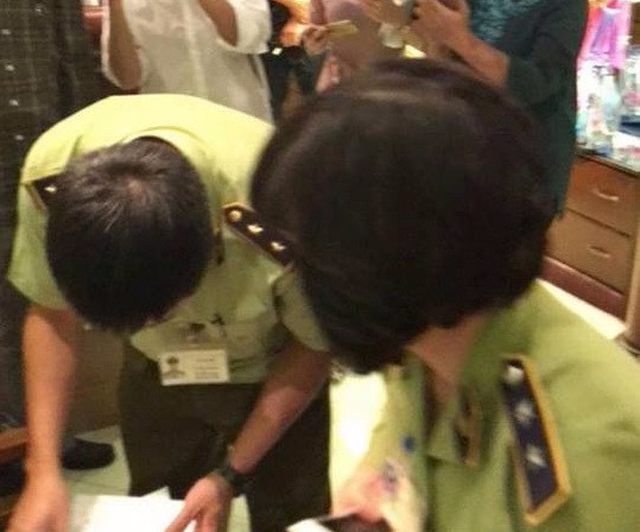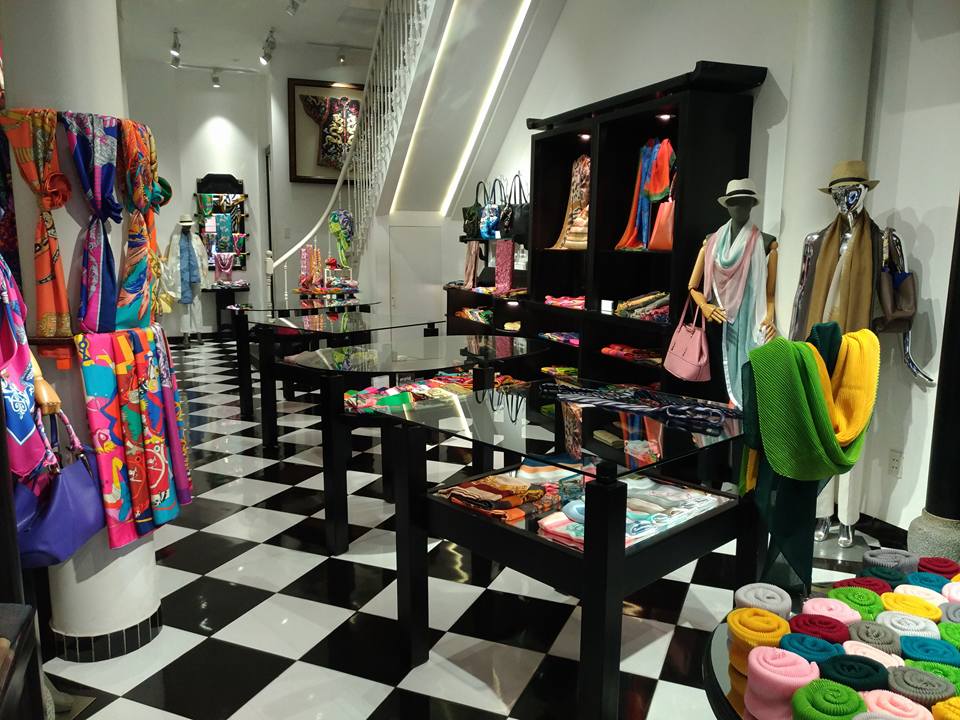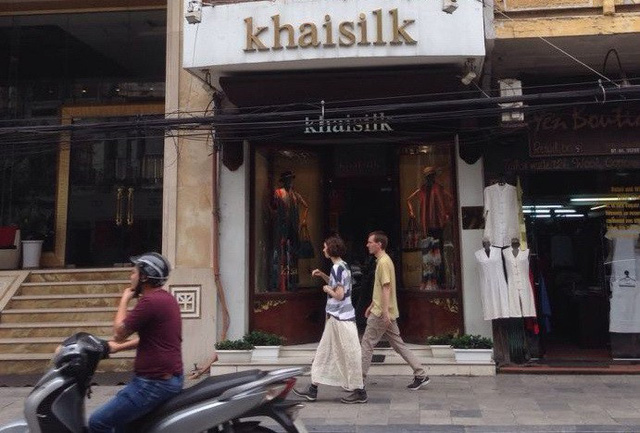The Hanoi market surveillance agency checked a Khaisilk store on Thursday and temporarily confiscated a number of products for investigation, after the owner of the popular silk brand admitted that half of his scarf stock, marketed as made-in-Vietnam items, is sourced from China.
The inspection of the Khaisilk Hanoi Main Store on Hang Gai Street in Hoang Kiem District came hot on the heels of the Ministry of Industry and Trade’s request to probe reports that Khaisilk deliberately sells Chinese products under the guise of made-in-Vietnam labels earlier the same day.
More than 50 silk scarves have been seized from the store for investigation, according to Hanoi’s market surveillance team No.14.
In Vietnam, Khaisilk is considered a premium product, popular amongst local luxury consumers and international tourists, with some items selling for more than VND2 million (US$88) a piece.
Khaisilk scarves have been a hot topic on Vietnamese social media since early this week, when one of the company’s scarves was found bearing both a ‘Made in China’ label and a ‘Made in Vietnam’ one.
It was alleged that Khaisilk would import Chinese scarves and cut out the ‘Made in China’ labels before placing the ‘Made in Vietnam’ ones onto them.
The brand owner, real estate tycoon Hoang Khai, chairman of Khaisilk Group, admitted in an interview with Thanh Nien (Young People) newspaper that allegations of mislabeling were true.
Khai took the confession one step further by declaring that at least 50 percent of the company’s silk scarves are from China and the other 50 percent are domestically sourced.
He told Thanh Nien he was convinced that it was a common practice, saying such brands as Zara and H&M also source products from China and sell under their own brand names to customers worldwide.
He claimed that the practice is ethical as long as product quality is guaranteed.
 |
| Market surveillance officers are seen at a Khaisilk store in Hanoi on October 26, 2017. Photo: Tuoi Tre |
Law violations
On Thursday morning, Minister of Industry and Trade Tran Tuan Anh signed a dispatch, requesting the Vietnam Competition Authority as well as the market surveillance department and its consumer protection counterpart to look into the case.
“If there are signs of violations in terms of product origin, counterfeit goods and the law on consumer protection, the agencies involved must propose solutions to handling the case and report to the ministry by October 28,” the dispatch reads.
Associate Professor Do Van Dai, dean of the civil law department of the Ho Chi Minh City University of Law, told Tuoi Tre (Youth) newspaper that Hoang Khai’s confession has caused huge damage to consumers.
“People choose Khaisilk products because they trust the brand; now they know that what they have bought are Chinese products,” Dai said.
Dai added that Khaisilk has also violated the law on consumer protection, which rules that consumers have the right to know accurate information about the origin of the goods they buy.
 |
| The scarf with two labels is seen in this photo posted on the Facebook page of Dang Nhu Quynh. |
Pham Ngoc Hung, deputy chairman of Vietnam’s Anti-Counterfeiting Fund, said by sourcing Chinese products and replacing their labels, the silk company has not only deceived consumers but also committed a trade fraud.
“It is unacceptable for a company to use its reputation to cheat consumers with regard to product origin,” Hung said.
Khaisilk scarves are marketed as being made from Vietnamese silk by traditional craft villages, therefore only available at premium prices, Hung said, adding that the quality of these products is in doubt now that they are found to come from China.
“It is another breach of the law if the company sources the scarves from China at cheap prices and sells them at a five- or seven-fold rate,” he underlined.
 |
| A Khaisilk store in Ho Chi Minh City is seen in this photo posted on the company's Facebook page. |
Chinese scarves in disguise
Vietnamese Facebook user Dang Nhu Quynh said in a status update on October 23 that a company had placed an order of 60 Vietnamese silk scarves, costing VND644,000 ($28) each, from the Khaisilk Hanoi Main Store on Hang Gai Street.
Upon delivery, the buyer discovered that one of them had both ‘Made in China’ and ‘Made in Vietnam’ labels, while the other 59 scarves showed signs of having a ‘Made-in-China’ label carelessly removed and a ‘Made-in-Vietnam’ label added.
A company representative later defended that all 60 scarves were made from “100 percent silk,” and that the only scarf in question belonged to another order, in which the buyer insisted it be labeled ‘Made in China.’
Like us on Facebook or follow us on Twitter to get the latest news about Vietnam!



















































